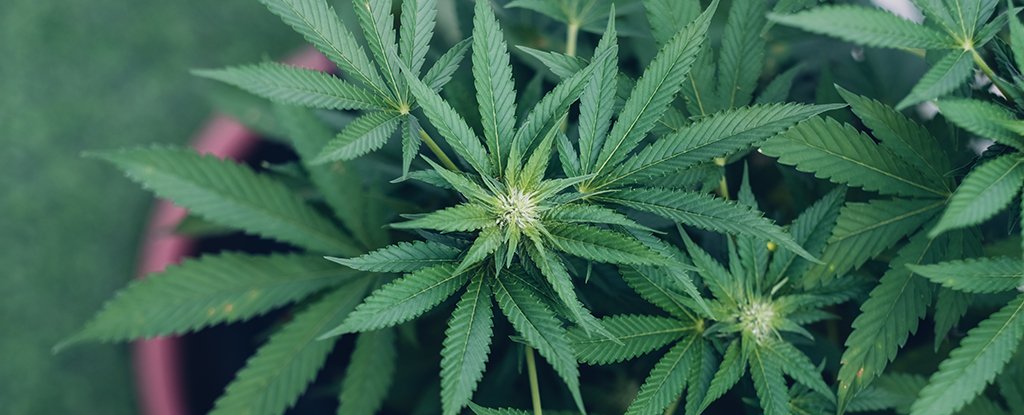
Tetrahydrocannabinol (THC), the main active ingredient in cannabis, has been shown to reverse conventional signs of brain aging in mice – a discovery that could help in finding ways to keep our brains healthier and sharper for longer as we get older.
The new study builds on what was already known about the endocannabinoid system and the cannabinoid receptor type-1 (CB1) in the brain, and their links to the gradual cognitive decline that comes with age.
What’s more, the team from Germany and Israel was able to observe how the anti-aging effects were taking place: through a signalling pathway involving the mTOR protein, which is associated with the healthy regulation of cell metabolism, and from there the metabolome (the overall composition of small molecules in the body).
“We have now been able to show that treatment with THC has a tissue-dependent and dual effect on mTOR signaling and the metabolome,” says molecular biologist Andras Bilkei-Gorzo from the University of Bonn in Germany.
Some of the same researchers had previously found that low doses of cannabis could improve memory and learning capabilities in aging mice, suggesting that there might be a relationship between THC and cognition worth exploring.
In this study, two groups of mice were used: young mice around four months old, and an older group around 18 months old. Some mice in each age group received a daily low dose of THC across a period of 28 days, and the effects were compared to age-matched controls.
The mice treated with THC showed a boost in mTOR activity in the brain and the production of more of the proteins necessary to form new synapses between neurons – which helps with almost every aspect of brain function.
What’s more, mTOR activity in fat tissue dropped in the same way that it does with a calorie-controlled diet: In other words, the body starts to dial down some of its production processes in ways that have previously been shown to slow down biological aging too.
“We concluded that long-term THC treatment initially has a cognition-enhancing effect by increasing energy and synaptic protein production in the brain, followed by an anti-aging effect by decreasing mTOR activity and metabolic processes in the periphery,” says Bilkei-Gorzo.
These are potentially very interesting findings for protecting brain health in old age. We know from previous studies that THC might be able to play a role in delaying the onset of dementia, and the drug clearly affects the brain in some pretty fundamental ways.
All of this still needs to be observed in humans, and it’s worth remembering that cannabis has been linked with harming brains as well as helping them. If these mechanisms can be harnessed in a healthy way, however, there’s hope for some significant brain health boosts.
“Our study suggests that a dual effect on mTOR activity and the metabolome could be the basis for an effective anti-aging and cognition-enhancing drug,” says Bilkei-Gorzo.
The research has been published in ACS Pharmacology & Translational Science.






